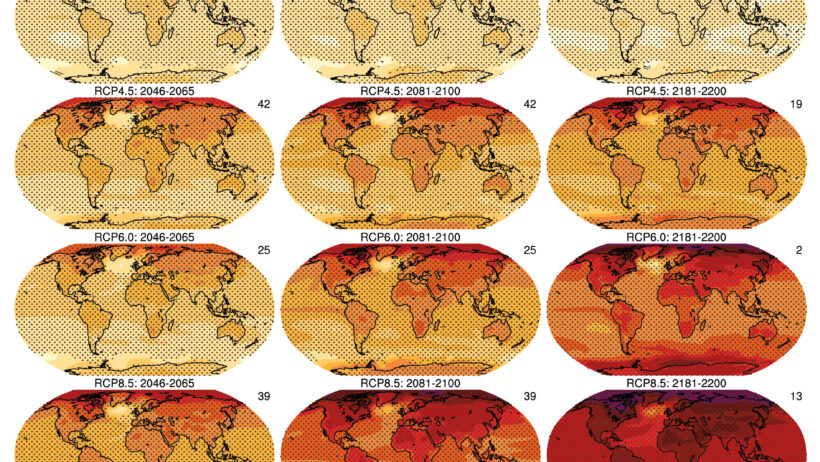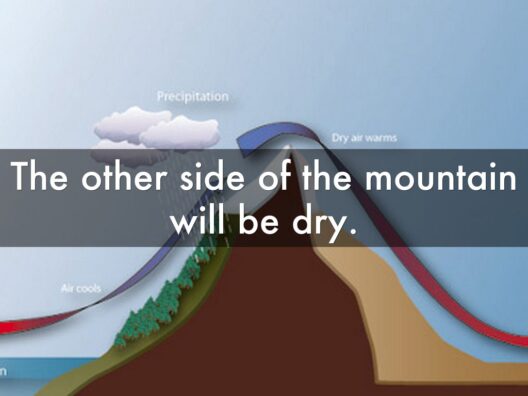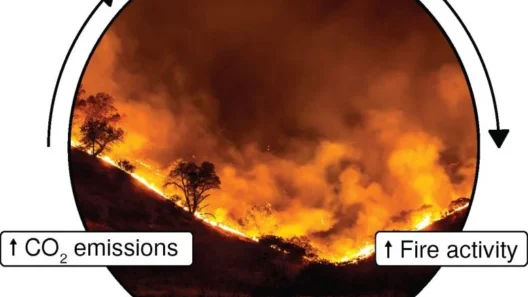As the global climate continues to warm, the intricate tapestry of socio-political landscapes across nations shifts dramatically. The United States, with its vast geographic expanse and diverse ecosystems, serves as a microcosm for understanding the profound impacts of climate change on national identity, economic stability, and governance. This article delves into the multifaceted relationship between climate change and its shaping of the United States, unraveling the threads of environmental, social, and political consequences that arise from a warming world.
The phenomenon of climate change is no longer an abstract concept relegated to scientific discourse; it is a palpable reality influencing the lives of millions. As temperatures rise, the ramifications on the American landscape are multifarious. From the increasing frequency of extreme weather events, such as hurricanes and wildfires, to altering agricultural viability in the Midwest, the impact is evident and far-reaching. This necessitates an examination of how such environmental transformations fundamentally reshape societal norms and governance structures.
The most immediate manifestation of climate change in the United States can be observed through its extreme weather patterns. In recent years, the nation has witnessed an uptick in devastating hurricanes along the Gulf Coast. These natural disasters not only cause direct destruction but also underscore vulnerabilities in infrastructure, particularly in low-income communities. As properties are destroyed and livelihoods are lost, the socio-economic disparities become painfully pronounced. Those already marginalized are often the least equipped to respond to such crises, raising critical questions about justice and equity in disaster response and recovery.
Moreover, the West Coast’s wildfires, exacerbated by prolonged droughts and heat, present another stark consequence of climatic shifts. The loss of forests contributes not only to environmental degradation but also threatens air quality and public health. When discussing climate change, it becomes clear that the specter of environmental collapse is intertwined with a host of public health challenges, further complicating an already strained healthcare system. Addressing these interconnected issues requires an astute and holistic approach to governance.
Climate change does not merely dictate our physical landscapes; it also permeates the national psyche. As Americans confront the realities of a changing climate, there is an increasing sense of urgency for action among the populace. Grassroots movements have proliferated, driven by a desire to address not only environmental degradation but also the accompanying social injustices. This burgeoning activism evokes a fascination with how collective action can wield influence over national policies, leading to climate legislation that aims to mitigate these pressing threats. The intersection of climate science and civic engagement thus raises the question of how effectively citizens can navigate the labyrinthine corridors of power to instigate meaningful change.
Economically, the implications of climate change are profound, particularly within sectors such as agriculture and energy. Farmers face an uphill battle, forced to adapt to shifting seasons and unpredictable weather patterns that jeopardize crop yields. The agricultural industry, which is vital to the American economy, finds itself at a crossroads, wherein traditional practices may no longer suffice. This shift necessitates innovation, potentially leading to a transformation in agricultural methodologies and sustainability practices that balance productivity with ecological stewardship. An examination of these economic realities prompts a broader dialogue on national priorities; how will policymakers balance the urgency for economic growth against the imperatives of environmental protection?
Energy production is another critical area significantly influenced by climate change. The U.S. has historically relied on fossil fuels, a practice that has contributed markedly to greenhouse gas emissions. As the nation grapples with the impending realities of climate change, the transition toward renewable energy sources becomes a focal point of national discourse. Solar, wind, and hydropower represent not merely alternative energy sources but also potential engines for economic growth and technological advancement. Policymakers face the dual challenge of weaning the country off fossil fuels while ensuring energy equity. Not every community has equal access to renewable resources, and disparities in energy incorporation can perpetuate existing socio-economic inequalities.
The interplay between climate change and national governance is thus a critical area for exploration. Policymakers are often torn between the imperatives of economic growth, fossil fuel dependence, and the burgeoning demand for comprehensive climate strategies. Legislative inertia, driven by political polarization and lobbyist influences, complicates the crafting of effective environmental policies. As climate science becomes increasingly indisputable, the challenge lies in translating scientific consensus into actionable policies that resonate with diverse constituencies across the political spectrum.
The landscape of climate change is further shaped by international relations and global collaborations. The United States cannot act in isolation; it exists within a complex web of interdependence. International climate agreements, such as the Paris Accord, highlight the necessity of collective action across nations. The U.S.’s role on the global stage, and its willingness to collaborate with other countries, becomes a reflection of its commitment to addressing climate challenges holistically. By stepping up as a leader in international climate policy, the U.S. can influence global climate actions, reinforcing its role in shaping a sustainable future.
In conclusion, the ramifications of climate change profoundly shape the United States, touching every facet of society from environmental vulnerabilities to economic viability and governance frameworks. As we stand at this pivotal juncture, the intertwined fates of communities and ecosystems beckon us towards a more sustainable trajectory. Addressing climate change necessitates an understanding that goes beyond mere adaptation; it invites a reevaluation of our core values and our responsibilities to one another and the planet. Thus, as this warming world presents both challenges and opportunities, the path we forge will ultimately define the character of our nation for generations to come.






